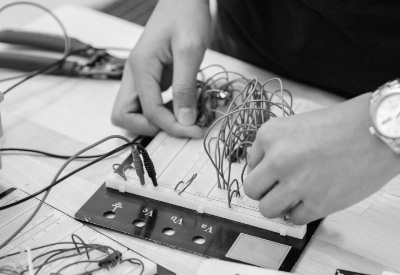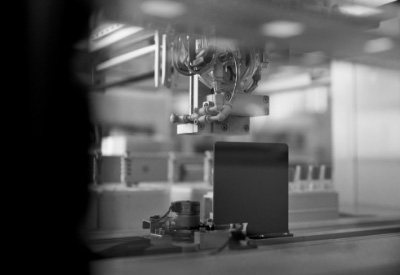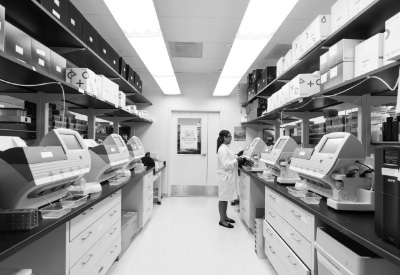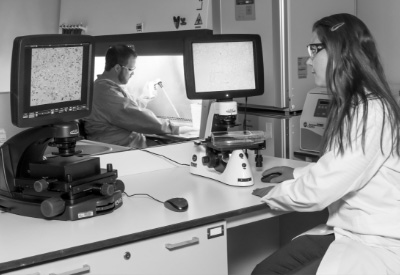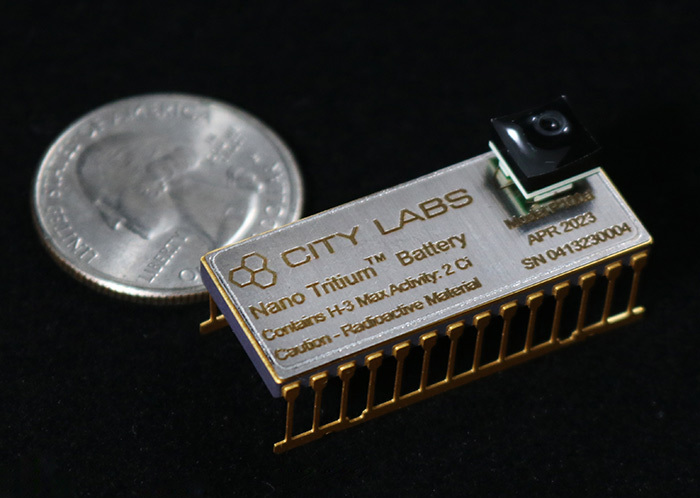
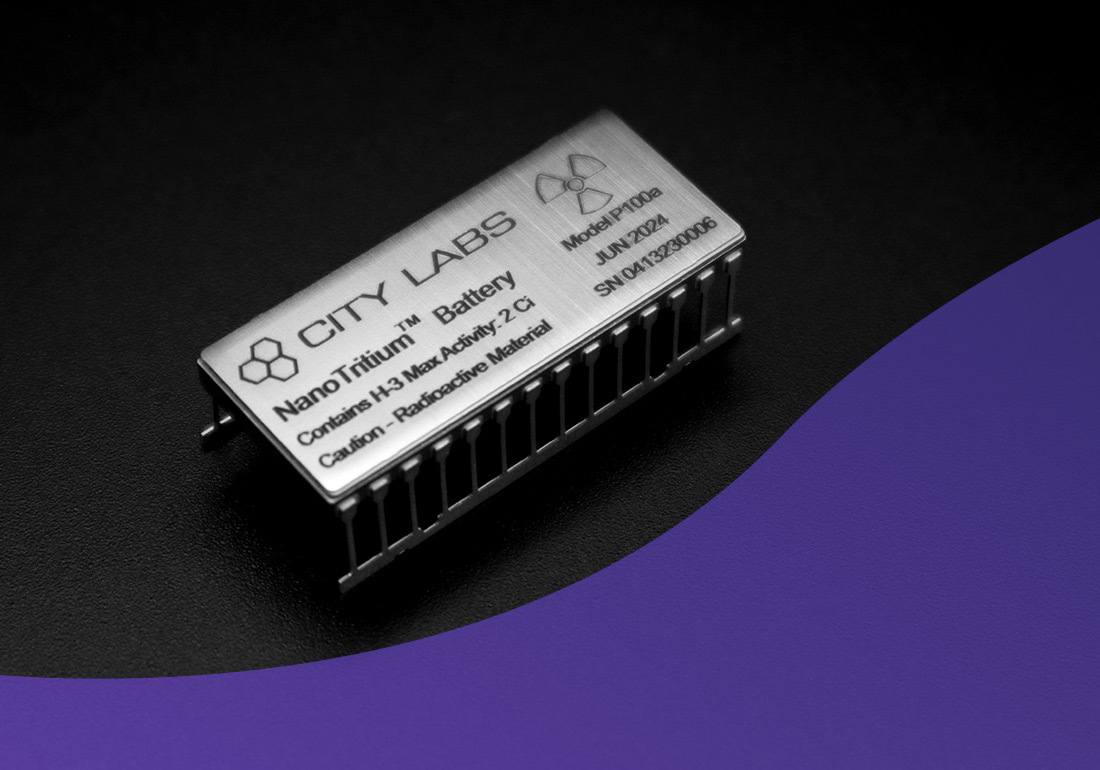
City Labs believes that developing innovative power solutions requires a constant effort to improve products and remain at the forefront of scientific advancements. Although City Labs has already made great strides with the patented NanoTritium™ battery line, there is always room for enhancements that boost performance and expand applications.
Through this dedication, City Labs aims to bring reliable, long-lasting power to more industries and applications than currently possible. To achieve these goals, City Labs teams up with leading experts in nuclear engineering, including Dr. Thomas Adams.
City Labs CEO Peter Cabauy and Dr. Thomas (Tom) Adams share a long history of collaboration that began while working on energy storage technologies for U.S. Department of Defense Anti-Tamper efforts and grew the collaboration during Dr. Adams’ master’s and PhD studies at Purdue University, where Dr. Adams credits Peter as instrumental in his academic achievements.
“I really believe in what Peter is doing. His work is what inspired me to go back to school for nuclear engineering.” ~ Dr. Tom Adams
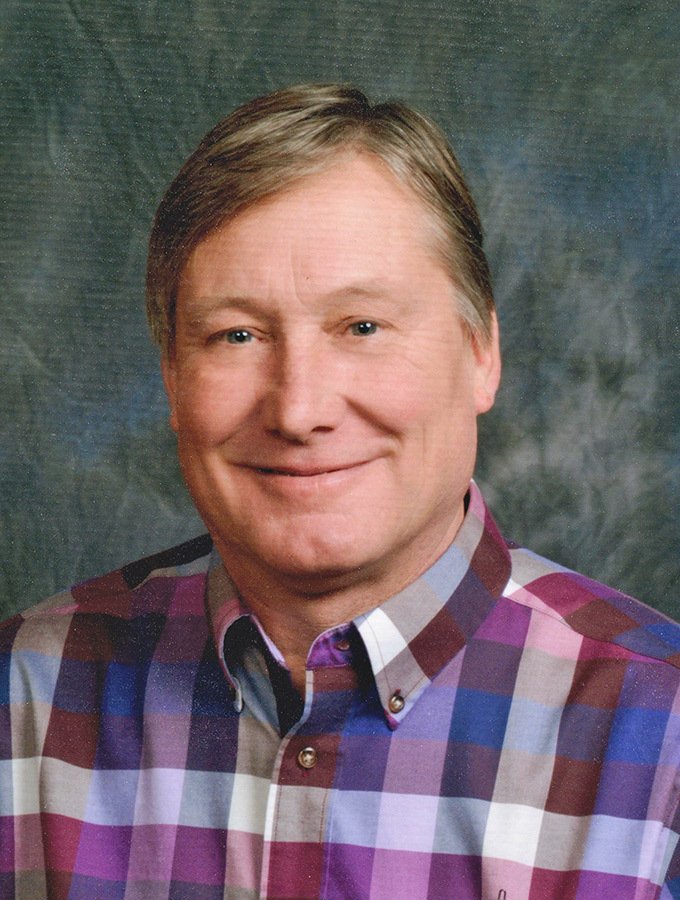
Dr. Adams—now a scientist at the Naval Surface Warfare Center, Crane Division, and an adjunct professor in the School of Nuclear Engineering at Purdue University, where he continues to run his own laboratory—works closely with City Labs. This ongoing partnership focuses on innovative processes and materials aimed at enhancing tritium loading in thin-film substrates to boost power output while ensuring tritium containment.
Addressing Power Challenges
Dr. Adams is helping characterize City Labs’ betavoltaic cells under extreme conditions. This involves testing the batteries’ performance in both extremely hot and cold environments to simulate environments experienced in remote terrestrial areas on Earth, the lunar surface, Mars, and outer space. These tests are critical to assess the radiation hardened properties of the betavoltaic cell design from exposure to high gamma and neutron radiation in space.
In addition to these characterizations, Dr. Adams has conducted a series of modeling experiments with City Labs. These experiments explore how to scale up the batteries and increase their energy and power densities. Several materials and methods have been explored —such as alloys and metal hydrides—that can absorb and contain more tritium than traditional materials like titanium.
Another key area of interest is the development of hybrid batteries capable of burst power for commercial and military applications. This technology would be particularly beneficial for sensor applications, allowing sensors to use the steady power from betavoltaic cells for data recording and then transmit data periodically using higher burst power to satellites, vehicles, access nodes, or ground-based stations.
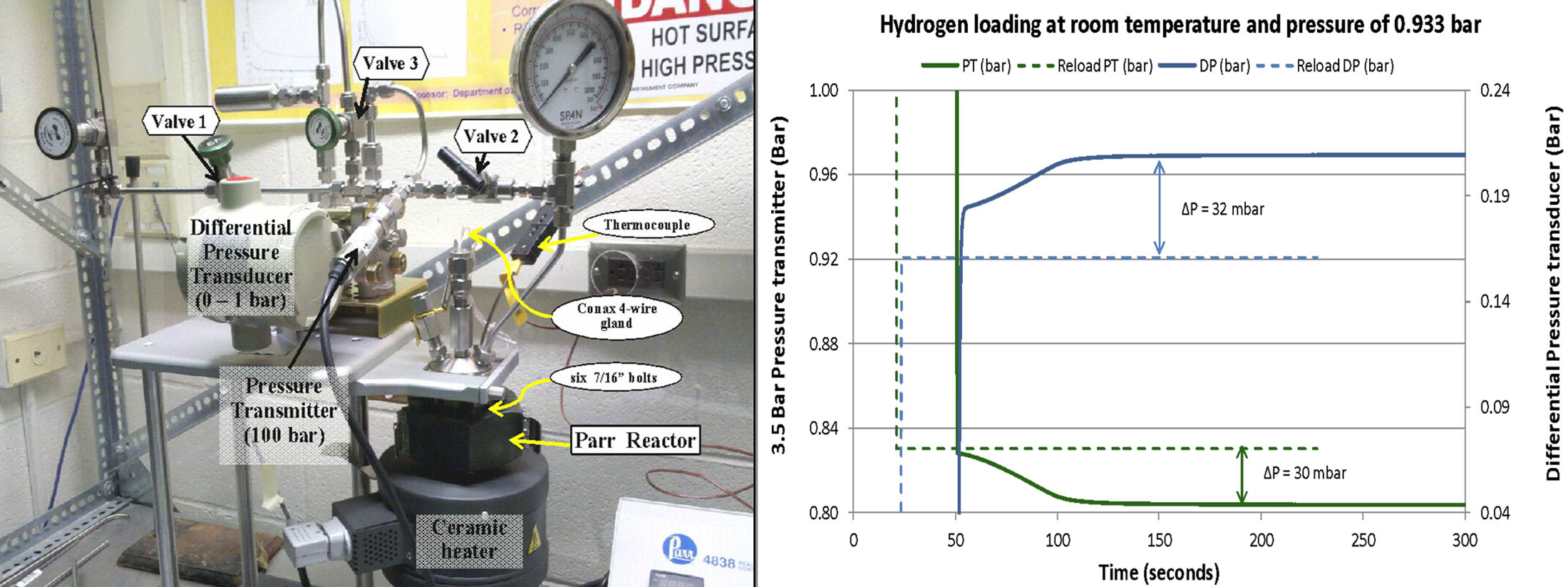
Hydrogen Absorption Experiment at Purdue University | Hydrogen Absorption Experiment Measurements
Solutions for Power Limitations Across Industries
Dr. Adams sees significant potential for City Labs’ technology across several industries, particularly in defense and NASA applications. One notable advantage of NanoTritium™ batteries is their improved performance at lower temperatures—a feature tested down to -55 degrees Celsius.
Upcoming experiments aim to simulate lunar surface conditions as low as -140 degrees Celsius to test the potential application of NanoTritium™-powered sensors for searching for water and other volatiles on the Moon. Dr. Adams is also planning a series of radiation-hardening experiments to optimize City Labs’ batteries for survival in outer space, where high gamma and neutron doses can damage crucial microelectronic components.
The primary application for these advanced batteries is to power distributed sensors in extreme environments, such as outer space or the Arctic. These sensors have a wide variety of potential use cases in intelligence, surveillance, and reconnaissance (ISR), as well as tagging, tracking, and locating (TTL) applications. The combination of long-lasting power and robust durability across a wide range of temperatures makes them ideal for critical military and space-based operations.
Dr. Adams foresees great potential for NanoTritium™-powered sensors to become mainstays in military operations, where their sensing capabilities greatly enhances situational awareness by providing crucial information on the presence and location of enemy combatants and other vital data for navigating contested environments.
Powering the Future
The collaboration between City Labs and Dr. Adams exemplifies the innovative and cross-disciplinary spirit necessary for advancing nuclear battery technology. By addressing current power challenges, emerging applications, and combating public perception, this partnership continues to advance novel and compelling energy solutions that ensure reliable power for critical applications even in the most extreme environments.
If you are interested in partnering with City Labs to leverage our cutting-edge tritium battery technology and tritiated thin-film substrates, we invite you to contact us today.
The Nuclear Battery Company With a Vision
Ready to power your next innovation or learn more about our technology?
Contact Us Today